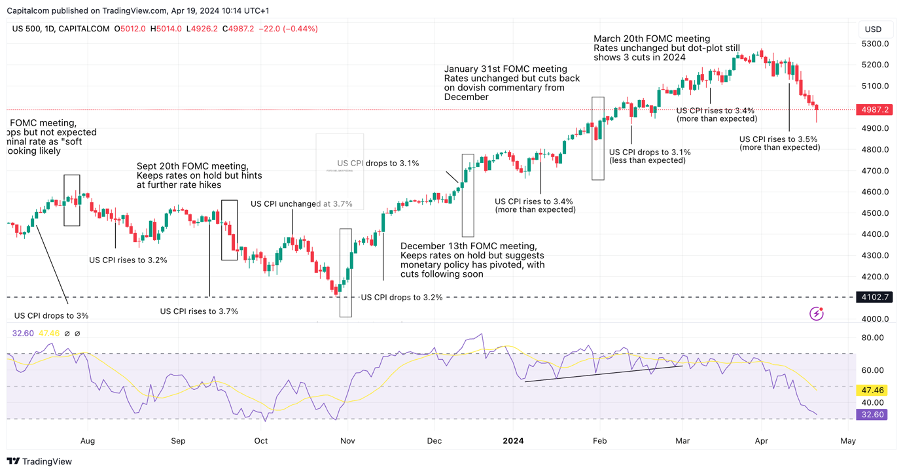Oil spikes higher, global shares drop as Israel attacks Iran
Risk off sentiment intensifies in markets as news breaks that Israel has attacked Iran
Crude oil prices jumped on Friday morning amid reports of explosions in a city in Iran, spiking concerns about a wider conflict between Israel and Iran. US crude (WTI) futures jumped 4.5% overnight as news broke about the attacks, but the price has since settled back to the daily open around $82.80.
Before the news broke, oil prices were heading towards a weekly decline as the latest US supply data revealed a fourth week of inventory increases, weighing on expectations of future demand. Moreover, markets had started to discount the risks of an all-out war in the Middle East, but they may now have to reconsider.
The latest developments could see supply risks become a reality, putting further bullish pressure on oil prices. Iran had previously warned Tel Aviv that if it retaliated, so would Tehran and that retaliation would be on a greater scale than the missile strikes from last week. This would lead markets to have to price in a higher risk premium.
So far, Iranian media seems to have downplayed the impact of the attacks, which has helped pare back the gains in oil prices. Nonetheless, the bias remains bullish in the short term although it will be important for WTI to achieve a daily close above $82.54 to consolidate the move higher.
US crude (WTI) daily chart

Past performance is not a reliable indicator of future results
Meanwhile, global equities spiked lower as news of the attack emerged, increasing the recent risk-off sentiment that has been present over the past few days. Yields on US bonds also dropped as investors flocked to safer investments, pushing the price of gold and US treasuries higher. Equity markets had already been in a mood to correct, with the major global indices retracing from the highs on April 1st. Increased geopolitical tensions could end up being the catalyst to push bearish sentiment over the top after stronger-than-expected economic data in the US reversed the long-term bullish rally in equities.
S&P 500 daily chart

Past performance is not a reliable indicator of future results